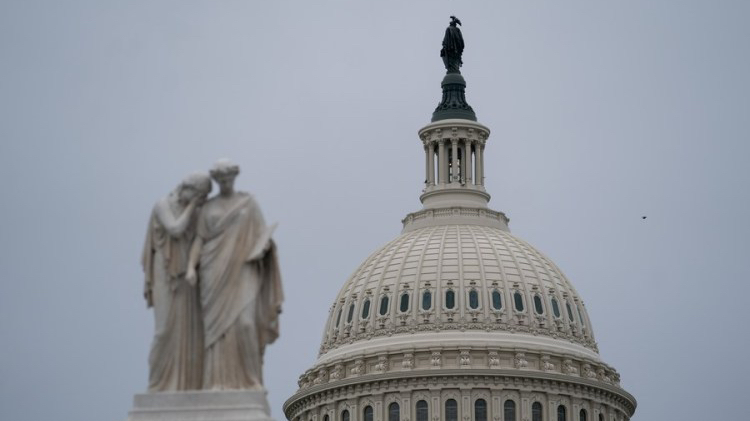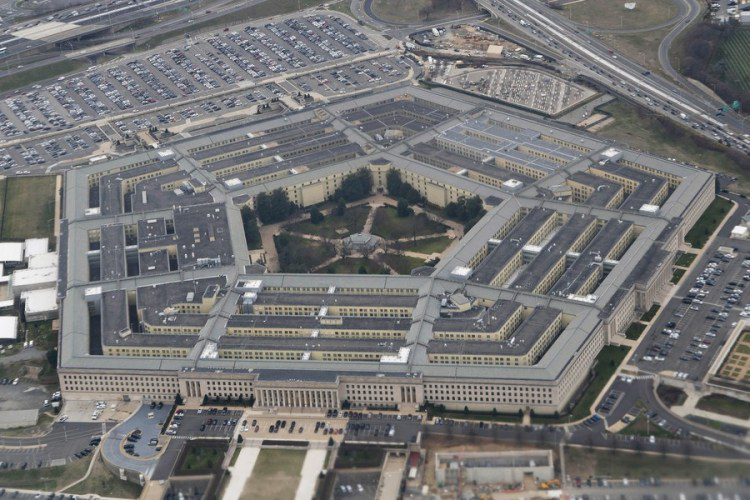
The U.S. Capitol building in Washington, D.C., United States, January 4, 2023. /Xinhua
The U.S. Capitol building in Washington, D.C., United States, January 4, 2023. /Xinhua
Editor's note: Azhar Azam works in a private organization as a market and business analyst and writes about geopolitical issues and regional conflicts. The article reflects the author's opinions and not necessarily those of CGTN.
China's rise at the global stage as a leading economic power and its success in lifting masses out of poverty and improving their lives have been taken as a challenge for the Western democratic system led by the U.S. yet Beijing has never sought to impose its governance model on other countries or destabilize other democracies.
International scholars such as William Overholt – senior research fellow at the Harvard Kennedy School – in a paper emphasized Beijing wasn't a "demon" and the U.S. allies were not "angels" and that the two economies had "enormous mutual interests" and "immense unpublicized national benefits" from the resulting stabilization between the two countries.
These shared interests have so far helped to overwhelm the calls of "decoupling" from some U.S. politicians and continue to perpetuate the growth in bilateral trade as American companies remain bullish on China. Even at 3 percent or 4 percent, the world's second largest economy is expected to add more dollar value over the next five years than the U.S., another reason for investors' confidence in China.
The "balloon-gate" must not accelerate "decoupling" or spell trouble for the investment relationship since it won't make much impact on China's economic recovery but could complicate U.S. businesses' efforts to "compete, grow and expand" in global markets. The International Monetary Fund sees Chinese growth rebounding to 5.2 percent in 2023, suggesting the U.S. should look to take advantage of China's expanding consumption.
China's drive to achieve self-reliance is entirely defensive; its openness in trade and investment supports the U.S. jobs and economic growth. Amid former U.S. President Donald Trump's intense trade war, exports to China in 2019 supported 758,000 jobs in the U.S., as per the United States Trade Representative; the number rose to more than one million, according to a latest report by the U.S.-China Business Council.
The U.S. Department of Agriculture in January announced record farm exports of $36.4 billion to China in the fiscal year 2022. The "robust" shipments and more than $300 billion of goods exports to China in the last two years, compared to just over $230 billion in a couple of prior years, underline a rising China and a "resilient" Chinese demand is key to inject momentum in America's economy.
Rising imports from China is the biggest weapon of the U.S. lawmakers to fuel anti-China sentiments among Americans; this has helped America to lower prices for consumers and create jobs for businesses. A 2018 study estimated the level of the U.S. consumer price index in 2017 would have been 27 percent higher if the share of America's imports from China had stagnated to 1994 levels. Cheap Chinese imports also accelerate the U.S. clean energy transition as Beijing is estimated to account for about 80 percent of lithium-ion battery shipments in the country.

The Pentagon seen from an airplane over Washington D.C., United States, February 19, 2020. /Xinhua
The Pentagon seen from an airplane over Washington D.C., United States, February 19, 2020. /Xinhua
Data from the U.S. Bureau of Economic Analysis showed the U.S. companies in China had generated $573 billion in revenue and $38 billion of profit in 2019, bolstering the U.S. efforts to compete better globally. The total stock of Chinese investments, estimated at $145 billion in 2019, provided the U.S. government a critical source of funding as well as effortless, inexpensive capital for the industry.
With a large consumer base and integrated supply chains, China's economic recovery after COVID-19 reassured investors and contributed to high foreign direct and portfolio investment. As China reopens for the world again, investors are regaining confidence in government policies and are ready to put their money in the Chinese market including the technology sector.
For years, a large inflow of Chinese students and scientists contributed to billions of revenues, supported hundreds of thousands of jobs and helped the U.S. to sustain its leadership in innovation and technology. But the trend is reversing now over growing racism and hatred against Asians especially Chinese Americans. This doesn't prevent Chinese scientists from becoming an integral part of the global scientific community yet threatens to dethrone the U.S. as the world's science and technology leader.
Unequivocally, China is still much more open to trade and investment with the U.S., even compared with America's own allies and partners. By reneging on the basic principle of the establishment of the bilateral relationship in 1979, continuing tariffs and imposing restrictions on Chinese companies, the U.S. President Joe Biden's administration however has "broken" its promise and declared an "economic war" against Beijing.
Several studies have documented the negative impact of the U.S. tariffs on Chinese goods, hurting America's manufacturing sector, employment and even exports. These measures augur ill for the U.S. consumers as it has translated into about $169 billion, according to the U.S. Custom and Border Protection. This "aggressive approach" roughly costs $1,287 per American household ($168.837 billion/131.2 million households), more than the U.S. Congressional Budget Office forecasted ($1,277) in 2020.
The "draconian decoupling," some in the Biden administration are actively pursuing, will adversely affect the U.S. economy and consumers for the two economies are deeply entwined and the cost of such policies will be "uncomfortably high" for the American economy. This Cold War approach isn't going to sustain given strong China-U.S. economic interdependence.
China's advent as an economic and technology power continues to give the world a real hope to combat next-generation global challenges such as resurgent poverty, slowing global economy, future pandemics, energy and food crises, climate change and environmental degradation through cooperation in trade, digital economy, research and development, science and technology and other areas of common interests.
Americans may never know these facts from a polarization-rife U.S. political establishment that forever focuses on conflicts with China over fear, being honest, will puncture its Cold War fallacy. But the truth – an effective China-U.S. economic collaboration led to the "greatest reduction" of poverty in human history and a partnership between the two major stakeholders of world's peace and economy can deliver many productive outcomes to them and mankind – can't be hidden for too long by wandering balloon-like incidents.
(If you want to contribute and have specific expertise, please contact us at opinions@cgtn.com. Follow @thouse_opinions on Twitter to discover the latest commentaries in the CGTN Opinion Section.)